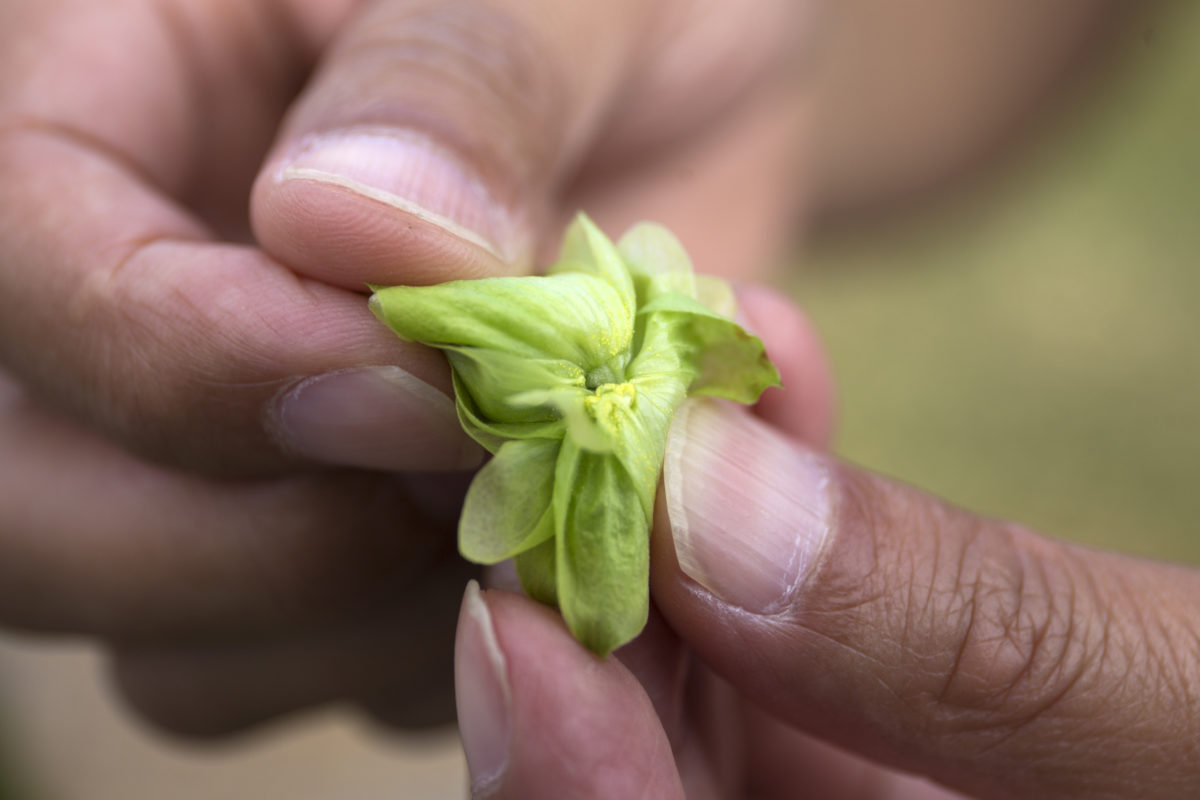
APOPKA, Fla. – Researchers with the University of Florida Institute of Food and Agricultural Sciences (UF/IFAS) have been awarded a two-year grant for $194,000 to breed varieties of hops that can grow in Florida.
The researchers, based at the UF/IFAS Mid Florida Research and Education Center (MFREC) in Apopka, Florida, said the grant will help continue their work to bring an alternative crop to the state. Hops are a vital component in brewing beer, and the craft beer industry has exploded in recent years.
“The 195 craft breweries across Florida produce 1.3 million barrels of beer and add $3.1 million to the state’s economy,” said Brian Pearson, assistant professor of environmental horticulture. “This makes hops an attractive alternative cash crop for Florida growers seeking to diversify their farm portfolio.”
The research team is comprised of lead researcher Alfred Huo, an assistant professor who focuses on breeding ornamental plants and vegetables using biotechnology such as CRISPR; Roger Kjelgren, director of the (MFREC); Lance Osborne, an entomology professor who specializes in invasive pests and the use of insects to manage them; and Pearson, who will focus on manipulating plant hormones to produce Florida-friendly varieties.
With the help of grants and private financial and in-kind donations, UF/IFAS researchers across the state are cultivating hops varieties to see which ones will grow in Florida, Pearson said. But scientists quickly realized that Florida’s days are too short to grow a substantial yield of hops with current available varieties.
“Hops need 16 hours of daylight during the growing season, and the longest our days get in Florida is 14 hours. So, we are seeing 100 pounds per acre produced in Florida,” Pearson said. “But, in the Pacific Northwest where days are longer, they are producing in excess of 1,500 pounds per acre.
“The solution is to breed a new variety that doesn’t need as much sunlight.”
Interest in the UF/IFAS research has reached international shores. Scientists from Brazil, which has a climate similar to Florida’s, are interested in the team’s breeding efforts. “Our breeding a new variety would be huge, not just for Florida, but also for other countries that pay an exorbitant amount of money to import hops,” Pearson said.
Researchers will use the grant to do just that, Huo said. Still, he cautions growers and craft beer breweries to exercise patience. “It can take five to seven years to get a new variety,” Huo said. “But it will be worth the wait.”
Source: UF/IFAS
Share this Post










